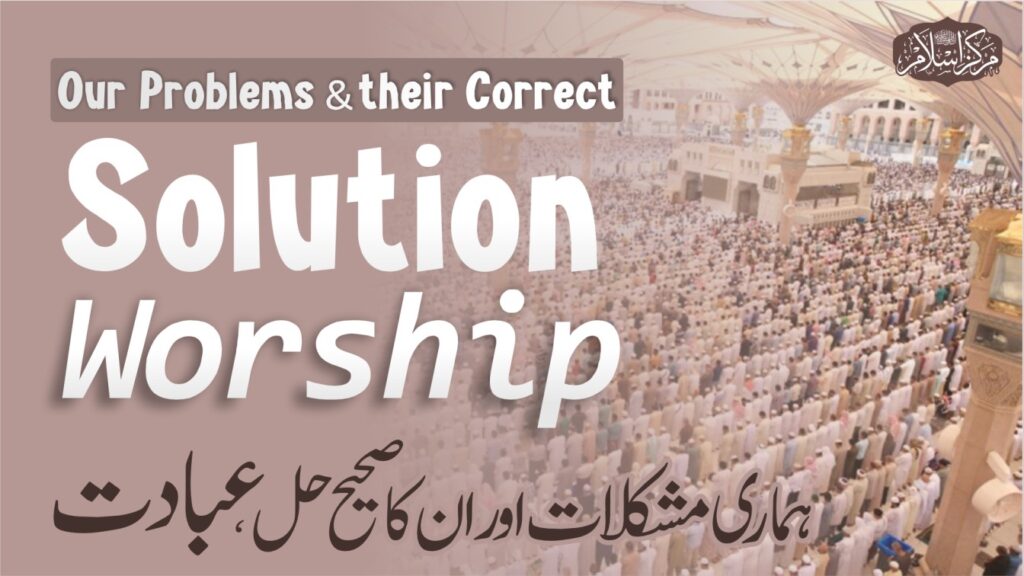Dua is a profound secret shared between a servant and their Lord, a humble plea that ascends to the heavens. In the Quran, Allah says,
وَقَالَ رَبُّكُمُ ادْعُوْنِـىٓ اَسْتَجِبْ لَكُمْ ۚ
“And your Lord says, ‘Call upon Me; I will respond to you.” (Surah Ghafir: 60).
This promise assures us that our Creator is always listening to us. The Prophet Muhammad ﷺ described dua as the essence of worship and taught us that when making dua, we should have pure intentions, humility, and a heart deeply inclined towards Allah. When we raise our hands in supplication, it serves as a reminder of our need, our humility, and our dependence on His mercy. The etiquettes of dua demand sincerity and reverence so that we can recognize our own selfishness, heedlessness, and deceptions of the self, and turn to Allah with a true heart.
Table of Contents
Prayer Preparation: Physical and Mental Preparation
Physical and mental purity hold great significance in preparing for dua. The Quran repeatedly directs us toward cleanliness and purity, as the cleansing of both heart and body brings us closer to Allah. Allah says,
اِنَّ اللّـٰهَ يُحِبُّ التَّوَّابِيْنَ وَيُحِبُّ الْمُتَطَهِّرِيْنَ
“Indeed, Allah loves those who repent and those who purify themselves.” (Surah Al-Baqarah: 222). When we perform wudu before making dua, it not only purifies us outwardly but also instills humility and prepares our hearts. This act of wudu cleanses us in both body and spirit, reminding us to present ourselves with reverence before Allah.
Mental preparation is just as essential as physical readiness when it comes to making dua. As we prepare to pray, it’s vital to free our hearts from worldly concerns and distracting thoughts. We must remember that in dua, it is just us and Allah alone. The Prophet Muhammad ﷺ said,“When you ask Allah, do so with firm belief” a powerful reminder that dua requires unwavering faith and sincerity. When we focus our hearts solely on Allah, our hidden neglects and flaws naturally begin to surface, and a unique light draws us closer to Him.
Intention: Setting a goal with sincerity
Sincerity in intention forms the foundation for the acceptance of dua. Allah says in the Quran,
وَمَآ اُمِرُوٓا اِلَّا لِيَعْبُدُوا اللّـٰهَ مُخْلِصِيْنَ لَـهُ الدِّيْنَ
“And they were not commanded except to worship Allah, being sincere to Him in religion” (Surah Al-Bayyina: 5). Sincerity means purifying our dua solely for Allah, not for seeking approval or attention from others. It is a commitment that our aim is not worldly desires or temporary gains, but rather to draw closer to Allah. When we present ourselves before Allah with complete honesty, He listens to the call of our hearts. It is this sincerity that grants our dua greater strength and purity.
Having sincerity of intention grants us humility and softness of heart in dua. The Prophet Muhammad ﷺ said, “Actions are judged by intentions” (Bukhari). This hadith reminds us that Allah looks at the state of our heart and our intentions. When we set our purpose during dua to seek only Allah’s pleasure and approval, a unique spiritual impact fills our supplication. In those moments of dua, when a person becomes aware of their weaknesses and mistakes before Allah and humbly submits, their heart is illuminated with the light of closeness to Allah. This not only increases the likelihood of acceptance but also brings tranquillity to the heart and refreshes the soul.
How to pray: Aligning the body and heart
Sitting in a humble manner with our hands cupped in front of our chest, envisioning ourselves as servants before our Master and Lord, is the best way to make dua. In this posture, we align our bodies and hearts with complete humility and focus toward Allah. Allah says in the Quran,
اُدْعُوْا رَبَّكُمْ تَضَرُّعًا وَّخُفْيَةً ۚ
“And invoke your Lord in humility and privately” (Surah Al-A’raf: 55). This verse reminds us that dua should not only be uttered by the tongue but must also come from the heart. When we physically and spiritually turn towards Allah, the depth of our supplication increases significantly. Raising our hands before Allah signifies that we are placing all our needs and concerns before Him, firmly believing that He is the One who hears our pleas.
When supplication is made with a focused heart and a humble body, it brings us closer to Allah and infuses our prayers with the impact we seek. The Prophet Muhammad (ﷺ) said, “Allah listens to the prayer of the heart that is made with humility and reverence.” Aligning our body and heart means directing all our attention, hope, and certainty solely towards Allah. These are the moments when we become acutely aware of our negligence and mistakes in life, and we seek Allah’s pleasure and approval. In such a state, when a prayer is presented to Allah with sincerity and devotion, it becomes much closer to acceptance.
Focus and avoid distractions.
When making supplication, it is essential to have complete focus and a unified heart because standing before Allah with a sincere heart leads us to divine proximity. In the Qur’an, it is said,
اَلَّـذِيْنَ اٰمَنُـوْا وَتَطْمَئِنُّ قُلُوْبُـهُـمْ بِذِكْرِ اللّـٰهِ ۗ اَلَا بِذِكْرِ اللّـٰهِ تَطْمَئِنُّ الْقُلُوْبُ
“Those who have believed and whose hearts are assured by the remembrance of Allah. Unquestionably, by the remembrance of Allah’s hearts are assured.” (Surah Ar-Ra’d: 28). This verse reminds us that the tranquillity of our souls can only be achieved through complete devotion to Allah. During supplication, we should strive to allow no thoughts in our hearts and minds except for Allah. We must bow before Him, oblivious to our surroundings, as if we are humble and needy in His presence.
The Prophet Muhammad (ﷺ) also emphasized the importance of having a focused heart during prayer. He (ﷺ) said, “Dua is accepted when the heart is focused on the prayer.” In today’s busy life, it has become a challenge to turn to Allah with complete attention, but the reality is that we should pray free from all thoughts and distractions when turning to Allah. This prayer not only brings peace to our soul but also alleviates the negligence in our lives. When we ask Allah with full attention, He grants our prayers acceptance by seeing the sincerity of our hearts.
Respect for congregational prayer
Respecting collective supplication is obligatory for every Muslim because it embodies a sense of unity, sincerity, and the message of bowing before Allah. When people come together to pray, it becomes a powerful force that has a greater impact than individual prayers. Allah Almighty said in the Quran,
وَاعْتَصِمُوْا بِحَبْلِ اللّـٰهِ جَـمِيْعًا وَّلَا تَفَرَّقُوْا
“And hold firmly to the rope of Allah all together and do not become divided” (Surah Al-Imran: 103). This verse reminds us that when we pray to Allah together, our hearts become closer to each other, and this unity is beloved to Allah. In collective supplication, when the negligence and sins in our hearts are swept away, a sincere cry rises from the heart.
The Messenger of Allah (ﷺ) said, “The mercy of Allah descends where people’s hearts become one, and they sincerely pray to Allah.” Therefore, when we participate in collective supplication, it is essential that we join the prayer with our full attention, respect, and sincerity. Our thoughts, gazes, and hearts should all be directed towards Allah, and each one of us should feel that this is a time to bow before Allah, acknowledge our shortcomings, and seek His mercy.
Closing Prayer: Gratitude and Reflection
Ending our supplication with gratitude and reflection deepens our spirituality and instills a sense of humility in our hearts. When we thank our Lord after praying, we are acknowledging that Allah’s grace is present in every moment of our lives. The Prophet Muhammad (ﷺ) said, “He who does not thank people, does not thank Allah” (Tirmidhi). So, consider how expressing gratitude after every prayer can bring positivity and peace to every aspect of our lives. The moment of reflection allows us to understand that everything we have is a blessing from Allah, and what we are asking for will also be granted by His grace. This moment after prayer gives us a chance to contemplate our shortcomings and mistakes, guiding us to move away from negligence and towards Allah’s mercy.
Avoid common mistakes in prayer
In prayer, we often make careless and inattentive mistakes that can become obstacles to the acceptance of our supplications. Sometimes, instead of sincerely asking in our hearts, we merely recite words verbally, while our hearts are not directed towards Allah. Allah Almighty has stated in the Qur’an:وَاللہُ بِکُلِّ شَیْ ءٍ عَلِیْمٌ ‘And Allah knows the state of your hearts’ (Surah Al-Hadid: 16). The true purpose of prayer is to call upon Allah from the depths of our hearts, to confess every weakness and mistake before Him, and to sincerely seek His mercy. However, if we pray without attentiveness, we distance ourselves from our Creator.
During prayer, our hearts may be entangled in worldly thoughts, or we may hastily conclude our supplications as if we don’t have the opportunity to ask Allah for anything. Remember that whenever we bow before Allah Almighty, He is listening to us and values our calls. Prayer is an opportunity to connect ourselves with Allah, to seek purification from our sins, and to strengthen our souls. So why not sincerely ask Him in our prayers, surrender ourselves to Him, and rectify our carelessness?
Making prayer a journey of growth
Making prayer a journey of development is, in fact, a great way to connect the heart and soul with the Lord. When we present our humility and helplessness before Allah, it becomes an excellent means of drawing closer to Him. Every prayer takes us one step forward and helps eliminate the hidden flaws within us. In a Hadith, it is said: ‘Dua is the weapon of the believer’ (Tirmidhi). Consider this: when we sincerely and confidently seek improvement in our prayers, every step we take begins to move towards peace, contentment, and growth. Prayer not only encourages us to ask for worldly needs but also transforms the darkness in our hearts into light. If we make our prayers a means of building our character, they will not only empower us to overcome difficulties but also make us strong and confident from within. Do not regard prayer as just a collection of words; instead, let it be a commitment made with the heart and intention to walk the path of progress.




